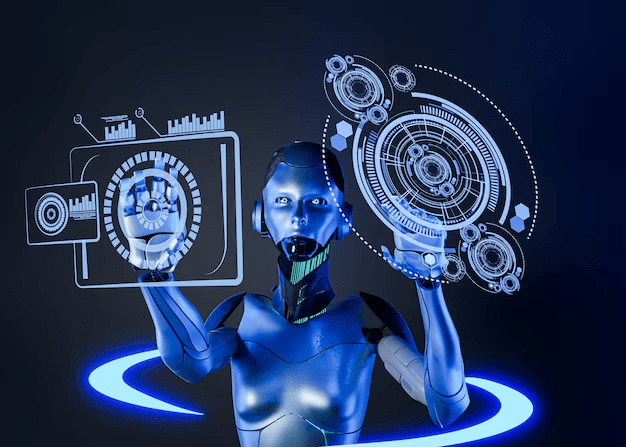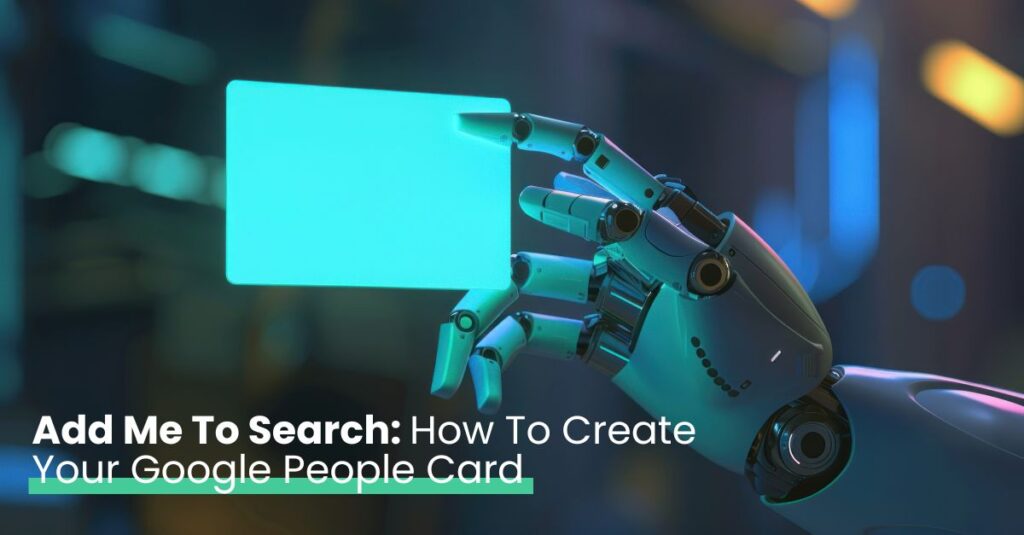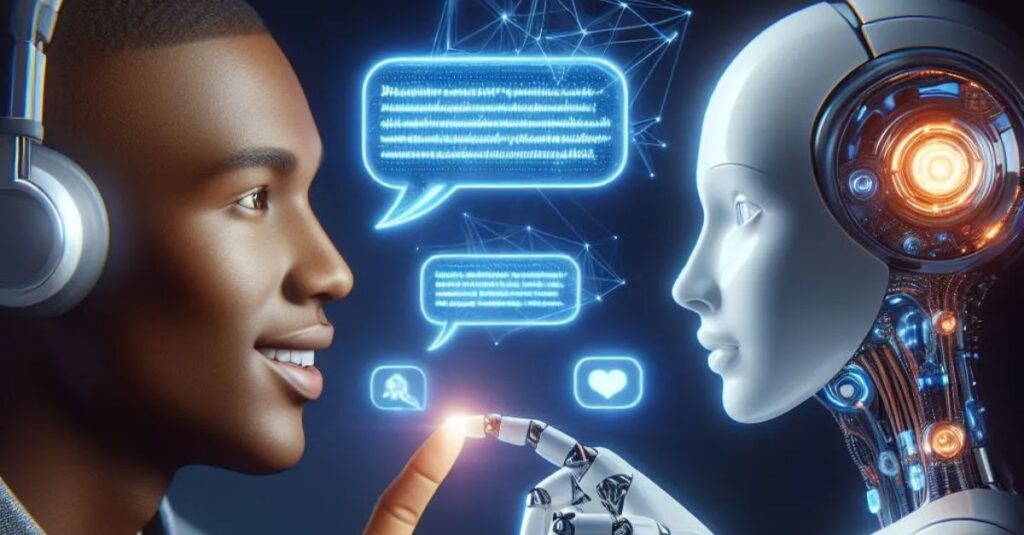Artificial Intelligence (AI) is no longer your science fiction stuff, but it has already arrived, changing how we live, work, and do business. In digital marketing, AI is a game-changer. It is changing the approach to strategies as well as the optimization of campaigns, resulting in unprecedented results.
What does it mean to leverage AI in digital marketing? How can marketers use artificial intelligence to make their efforts better? The article intends to answer such questions. It will look at the role of artificial intelligence in digital marketing and discuss its influence in this field.
We will touch on AI optimization, SEO’s AI application, and other ways that artificial intelligence improves modern marketing tactics. Moreover, we will consider some problems and ethical issues related to marketing AI.
This guide is meant for anyone involved in digital marketing— whether you are an SEO specialist or a business owner. The aim of this guide is to provide information that inspires and helps you integrate AI into your digital marketing strategy.

So let us embark on our journey of discovery. Now let’s see how your Digital Marketing can change with the help of Artificial Intelligence (AI).
Summary
AI was designed to help us cross the human limitation barrier. With it, we can reach the stars and beyond. But instead of welcoming help (AI), we are criticising it!
We are worried that it will take our jobs—well, so can our office neighbours if we do not upskill ourselves and integrate new technologies into our work routine! Plus, if we use AI well, we can achieve more than we could imagine.
A Few Facts
> AI is poised to add USD 25.6 trillion to the world economy.
> 67% of marketers feel that marketing automation is unavoidable.
> 87% of the marketers feel they have to use AI to meet customer needs and competition.
> 44% of businesses have used AI for content creation.
> AI will boost global labour productivity by 0.1 to 0.6% by 2040.
Understanding Artificial Intelligence in Digital Marketing
Artificial Intelligence (AI) brings about significant changes. Some sectors, like online advertising, are being reshaped by it. For instance, one needs to understand it before using it to benefit from its power.
AI refers to machines or software that behave like human beings in terms of knowledge and ability acquired through practice, adaptation to new inputs, and taking on tasks that require human intelligence.
In online advertising, this technology plays a great role. Data can be analyzed through this technology so that trends could be predicted while experiences may also be personalised. For example, in companies such as Amazon, where users receive suggestions based upon previous purchases they have made, it automates processes such as campaign optimization making decisions easier and thereby making them better.
However, the emergence of AI in marketing was not spontaneous. It is a result of slow change brought about by technology and consumer changes.

The Evolution of AI in Marketing
Using AI for simple automation marked the beginning of AI use in marketing. Some examples include sending emails or posting on social media using AI technology.
As the technology behind AI started to evolve, so did its applications in marketing. For example, it enabled marketers to conduct data analysis, predict consumer behaviour, and offer personalised experiences. PPC advertising, SEO, and customer service were some areas that began depending heavily on it.
Nowadays, digital marketing cannot exist without artificial intelligence. It is not just about making things easier or providing relevant information. This is what drives growth and innovation as well as gives a company their competitive advantage.
Defining AI and Its Relevance to Marketers
What is artificial intelligence (AI)? To put it simply, this term implies that branch of computer science which creates machines that resemble humans’ intellects.
Nevertheless, for these specialists, it’s more than just a technology; this is a tool assisting them in making their strategies better, campaigns optimized and results improved; thus, they would like to know more about it or employ it for such purposes.
Again, other than understanding customers fully, marketers can create personalised encounters while taking data driven decisions so as to be ahead of rivals within a fast-paced digital landscape; however, how does one begin?
AI Optimization: Revolutionising Marketing Strategies
AI has taken over digital marketing strategies. With its help, companies have managed to improve campaign management strategies by optimizing them, thus raising performance levels and leading to increased ROI rates.
By using the large amount of data available at any moment, this system can quickly recognise unknown persons as well as patterns or correlations missed by people; hence, it can make predictions, give recommendations, and automate tasks, all done instantly, thanks to the online tools that collect it.
But it can be argued that the most significant contribution of AI is in terms of personalization. In this context, AI enables a massive scale of customers’ personalisation by sending the right message to the right person at the right time.
Personalisation with Scale and Context via AI
For example, one trend in digital marketing is personalization. Customers expect personalised experiences. They want brands that understand their needs, preferences, and behaviours.
However, through AI, personalisation on a global scale has become possible. This includes analysing customers’ behaviours, predicting them, and making recommendations based on those predictions, as well as delivering personalised content and messages.
Through AI, marketers can create individualised experiences for each consumer while engaging them effectively to build relationships and drive conversions.
AI in Data Analysis and Decision Making
Data literally keeps any digital marketing strategy alive. However, it becomes challenging when such data is too immense to analyze hence the need for an intermediate tool like artificial intelligence.
AI, however, can help in quick but accurate analysis of data patterns, trends, or insights, producing the actionable intelligence required for decision-making. Marketers can make decisions using AI’s guidance by being able to test strategies in real-time, i.e., improve performance or achieve targets that were on hold before. Thus, AI is not only a tool for analysing data; it also collaborates strategically in decision-making!
SEO AI: Boosting the Efficiency of Search Engine
It must be remembered that SEO forms a critical part of internet marketing, which ensures more organic traffic by ensuring higher ranking on search engine result pages (SERP). However, there are times when SEO lacks effectiveness, unlike with the application of artificial intelligence (AI) which improves SEO performance. Sometimes you can even predict future changes in algorithms if you are lucky enough to have an advanced AI version, thus remaining ahead.
The Role That Machine Learning Plays In Enhancing SEO
In many ways, artificial intelligence changes SEO. With its assistance, we can better understand user intent, optimize keywords, and develop high-quality contents.
Additionally, it helps marketers align their keyword choices with user intentions and search engine algorithms.
In addition, AI can assess the quality of content, identify gaps in it, and suggest possible improvements. By doing this, marketers are able to create content that resonates well with users and ranks higher on search engines. We all know that “content is king.” However, creating high-quality content is not enough. It also has to be optimized for search engines.
Also, AI can extract keywords from text data and apply SEO principles to optimize them in order to rank on top of the SERPs or search engine results pages.
Artificial Intelligence for Better Customer Engagement
One of the top objectives of digital marketing is to connect with customers. This objective can be reached more efficiently through AI. It can personalise customer experiences, predict their behaviour, and engage them at the right time.
AI can study consumer data, identify their choices, and customise how they interact with them. Further, it anticipates their movements, thus helping marketers target them using relevant information as well as offers.
Chatbots and Customer Service
Chatbots are AI-powered tools for real-time interaction with customers. They can respond to customer questions, make suggestions on best-fit products, and even facilitate sales.
By providing 24/7 customer service, chatbots can enhance customer satisfaction and loyalty. In addition, they can release human resources so that it will be possible for them to handle more complicated tasks.
The same way chatbots collect information about customers, they help marketers in the process of making better decisions. The data can also be used in crafting marketing strategies by understanding what clients need, like, and how they behave.
AI-Driven Email Marketing
Email marketing is an excellent channel for connecting with consumers. However, composing personalised emails individually can be quite difficult. AI comes to the rescue!
With the application of AI in email marketing, businesses are able to analyse their consumers’ data patterns for effective targeting. The best time to send an email is another consideration, for instance, when it is most likely opened or clicked.
Moreover, AI goes further into analysing email performances by suggesting areas of improvement that would aid in making useful decisions as a result of the findings. This would help marketers optimize their e-mail marketing strategies through more effective engagement and increased conversions.
AI Marketing: Automation and Predictive Analytics
Artificial intelligence has revolutionised marketing. It is not only concerned with customer experience; rather, it enables the automation of repetitive activities, hence making marketers work smartly.
Tasks such as data analysis, content strategizing, content creation, and campaign management can be automated using AI technology. Thus, this type of automation saves much time and effort on behalf of marketers, thereby increasing task accuracy levels within companies.
Automating Repetitive Tasks and Saving Resources
The biggest advantage of using artificial intelligence (AI) in marketing is automation. AI can automate repetitive tasks, freeing up marketers to focus on more strategic tasks.
For instance, AI can automate data analysis, thus providing insights into customer behaviour, market trends, and campaign performance. It can also create content as per the needs of specific segments of customers.
Additionally, AI may handle the management of campaigns, thereby optimizing their performance over time. In this respect, it can adjust bids, distribute budgets, and target customers based upon their actions or preferences.
Predicting Consumer Behavior with AI
An effective marketing strategy should be able to predict consumer behavior. This function has been made efficient and accurate by artificial intelligence.
AI analyses large volumes of customer information, searching for patterns and links that could predict future behaviors. It will identify the next potential product one would think about purchasing by knowing the kind of content they prefer to engage with, mostly before a sale occurs!
Conversely, AI is capable of predicting how different market approaches are likely to be responded to by various groups of consumers. This allows marketers to optimize their strategies in order to achieve better results in terms of consumer engagement as well as increased sales.
Implementing AI in Your Digital Marketing Strategy
Integrating AI or artificial intelligence into your digital marketing plan might appear overwhelming at first. Nonetheless, it is possible if approached systematically and positively, where you only need to take smaller steps that cover certain areas while expanding later on when confident enough about your strategy using AI technology.

Getting Started with AI for Small Businesses
Adopting Artificial Intelligence (AI) in digital marketing by small enterprises does not have to be complex or costly, as there are numerous cheap and user-friendly AI tools and platforms available today.
Find out the spaces in your marketing strategy where AI can have the maximum impact. This could be customer segmentation, content creation, or campaign management. After that, select an AI tool that suits your requirements and budget.
Remember that the purpose is not to substitute human marketers with AI. Rather than this, it’s used as a medium for improving your marketing approaches, simplifying your routine tasks, and enhancing outcomes.
Defeating the Hurdles of Introducing AI into Digital Marketing
The adoption of AI in digital marketing has its own set of problems and constraints. Lack of knowledge about what AI is all about, data privacy concerns, and high-quality “humanised” data are among these challenges.
Therefore, it is important to educate yourself as well as your team about artificial intelligence if you wish to overcome these obstacles. Understand its limitations, benefits, and how artificial intelligence could help you promote products better. Also making sure that there is a robust data management strategy in place.
Lastly, remember that artificial intelligence is no miracle cure-all. It’s a tool for enhancing your marketing efforts, but it requires precised planning, perfect implementation, and keen monitoring to be effective.
AI: Future Trends in Digital Marketing
The future of digital marketing lies hand in hand with the growth made by (or happening within) AI. As such, we can expect more changes in our approach to marketing once AI evolves further. More so, it will also enable us to better understand our customers, offer them personalised experiences, and make informed decisions.

Moreover, AI will go hand in hand with you in overcoming some significant barriers faced by digital marketers today, namely ad fraud, data privacy, and the need for real-time insights. Accordingly, AI makes tackling these issues more efficient and effective for marketers.
Keeping pace with developments in AI
For marketers, staying ahead of advances in artificial intelligence is crucial. In doing so, they stay light years ahead of their competitors; however, since this technology keeps changing, those who do not keep up with these changes will be left behind. Therefore, they will greatly benefit from these lessons once they consider using AI in their strategies.
However, it is not about the adoption of new artificial intelligence tools and technologies. In this regard, marketers should also understand how AI affects the marketing environment and can drive better results.
Ethical Considerations in AI Marketing
AI marketing also has ethical considerations. These encompass data privacy, transparency, and possible biases in AI algorithms. Marketers should therefore be conscious of them as well as take measures that are targeted at addressing them.
Namely, marketers should responsibly handle customer data, explain how AI is used in marketing, and check if there are any biases within their AI algorithms. They could then ensure that their use of artificial intelligence was both ethical and respected the rights of customers.
In conclusion: Embracing AI for Marketing Success
Embracing digital marketing with the use of artificial intelligence is no longer a choice but a must! This offers multiple chances to improve your marketing strategies or activities to foster client participation and increase outcomes at large. Through leveraging an AI system, marketers can have an upper hand over their competitors, thereby remaining relevant amidst the rapid transformations witnessed in the digital world.
Nevertheless, one needs to approach artificial intelligence carefully by understanding what it can actually achieve without exaggerating its potential. This includes looking into issues surrounding ethics, making sure that there’s quality data, and integrating it with other existing marketing technologies. Once this happens, marketers can be sure of achieving success in their activities.
Wildnet Technologies is your gateway to Advanced Digital Marketing and IT Outsourcing Services. Be it Digital Marketing, White Label services, Design, and Development, or IT Staffing, with us, you can save up to 60% (US markets) and 40% (domestic markets) on costs and significantly increase ROI!
We are able to do it all with our 17+ years of experience, expert resources, and AI adoption!
If you would like to learn more,
> Top 10 free AI to Human text converters in 2024
> Devika & Devin: World’s first AI Software Engineers
> Wildnet’s Digital Yum (our weekly newsletter from the thought leadership)
Reach out to us at info@wildnettechnologies.com and see the magic of AI-powered Digital Marketing!
FAQs
FAQ 1. How is AI being used in digital marketing?
Ans: Be it researching for keywords and content, creating immersive and engaging creatives, analysing user data and behaviour to predict their future preferences, monitoring the digital marketing campaigns, or suggesting possibilities by comparing with competitors, AI can do almost everything in digital marketing.
Thus helping digital marketers focus on creativity and experimentation!
FAQ 2. What is the best example of AI in marketing?
Ans: A few examples of AI in marketing are:
- Proofreading and Plagiarism check via Grammarly
- Graphical content from Dall-E
- SEO analysis by Semrush
- Paid Ads via PMax and Programmatic Advertising
- Domain overview by Semrush
This roughly covers the basic aspects of digital marketing that are being boosted by AI!
FAQ 3. Is AI replacing digital marketing?
Ans: Not at all. With the world moving towards an AR or VR digital world, digital marketing is not going anywhere. AI will be inculcated in the digital marketing industry, though!
FAQ 4. Will AI replace SEO?
Ans: No, because SEO is a well-kept secret by Google. AI will help break down the SEO challenge and even garner results earlier. But AI can never replace SEO.
FAQ 5. Why AI is the future of marketing?
Ans: Because AI is the future and marketing is the most demanding and experimental industry, AI is, in short, the future of marketing!






